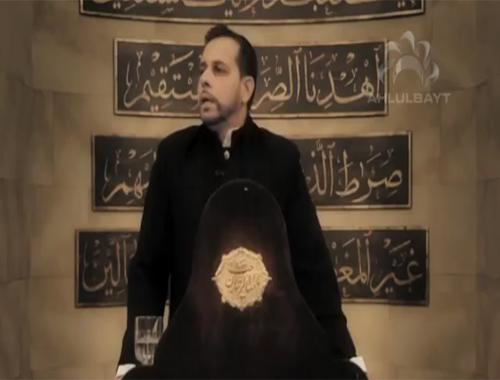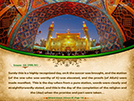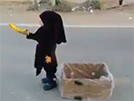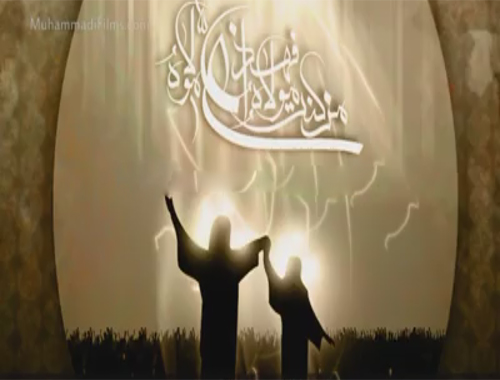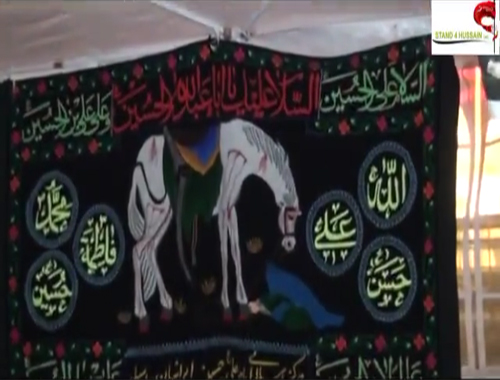The Twenty-Fifth Greater Sin: Consumption of HarÄm
- Details
- Hits: 3693
Chapter 27
The Twenty-Fifth Greater Sin: Consumption of HarÄm
--------------------------------------------------------------------------------
The twenty-fifth Greater Sin is Consumption of HarÄm. In the Qur’anic ayat ‘Akal al-soht’ is translated as eating of what is unlawfully acquired. Hence the word “eat” is not restricted to consumption of edibles but includes the use of any and every article, which has been acquired unlawfully or by illegal means.
Consumption of HarÄm is listed as greater sin in the Holy Qur’an and the tradition of Imam RiÄa (a.s.) from the book UyÅ«n al-Akhbar ar-RiÄa and the tradition of Imam Ja’far as-Sadiq (a.s.) as related by Amash. In the following ayat of Surah al-MÄ’ida:
“And you will see many of them striving with one another to hasten in sin and exceeding the limits, and their eating of what is unlawfully acquired; certainly evil is that which they do. Why do not the learned men and doctors of law prohibit them from their speaking of what is sinful and their eating of what is unlawfully acquired? Certainly evil is that which they work.”
(Surah al-MÄ’ida 5:62-63)
In this ayat Soht refers to the acquirement as well as use of anything acquired unlawfully. The dictionary meaning of ‘Soht’ is ‘to be finished’ or ‘to be lost’. The thing that becomes ‘Soht’ is that which is finished off or used up. The use of this word signifies that unlawfully acquired things do not have any ‘barakat’ and will not benefit the possessor in any way. It should be evident that this unlawful practice would include usurping another’s property, taking interest and all activities that are undertaken using the money obtained by illegal means. The use of article brought with such money is also unlawful.
Sayyid Abu A’lÄ Maududi writes in his book Islam and the Economic Problems: “Islam permits the people to obtain their livelihood in any way they choose. They have their freedom to choose their occupation and obtain the necessities of life, but Islam does not allow them to earn in a manner that is harmful for society. It should also not endanger the social equilibrium. Islamic laws not only prohibit the consumption of wine and intoxicants and gambling, but also prohibit any action that causes these sinful things to come into being. For example to undertake cultivation of grapes for wine making, to manufacture wine, to transport, to buy or sell wine, to give it and to use it; all these are HarÄm too. Islam does not consider free-sex to be a human activity. Islam has prohibited dancing. It does not consider singing and playing musical instruments lawful professions. Any activity that is beneficial to one person but harmful to someone else or to society is considered HarÄm in Islam.
All such types of actions carry a heavy punishment in this world and a dreadful retribution in the hereafter e.g. bribes, stealing, interest-taking, adulteration and frauds, unlawful hoarding of edible items to hike their rates making life difficult for the poor. In the same way all such actions that instigate wars and those occupations that do not require effort, making the person rich by luck, such as lottery. All these occupations are HarÄm.”
Shaykh SadÅ«q (r.a.) has narrated a tradition from Imam Ja’far as-Sadiq (a.s.) that he said,
“Any action of Khayanat with the Imam is ‘Soht’.”
There are many types of ‘Soht’. ‘Soht’ includes that which is received from the tyrant rulers, bribe to Qazis, payment for prostitution, wine, alcoholic nabid (a kind of wine), and interest.
“To bribe a Qazi (for giving a favourable judgement) is to disbelieve in Allah the Almighty.”
(KhisÄl of SadÅ«q)
A similar kind of tradition is to be found in the book al-KÄfi, Imam Muhammad al-Baqir (a.s.) says:
“‘Soht’ means the payment for corpse, for dogs and wine. It also denotes the fee paid to a prostitute, the bribe given to a judge and the payment to a Kahin.”[8]
(Wasa’il ul--Shia)
Although consumption of every type of HarÄm is ‘Soht’, some of them are denounced more emphatically and their punishment is more severe. The worst of these is taking bribe. One who accepts bribe is just like a disbeliever and the Holy Prophet (S) has cursed him. The one who takes interest is equated to the one who has made war against Allah (S.w.T.) and the Prophet (S).


